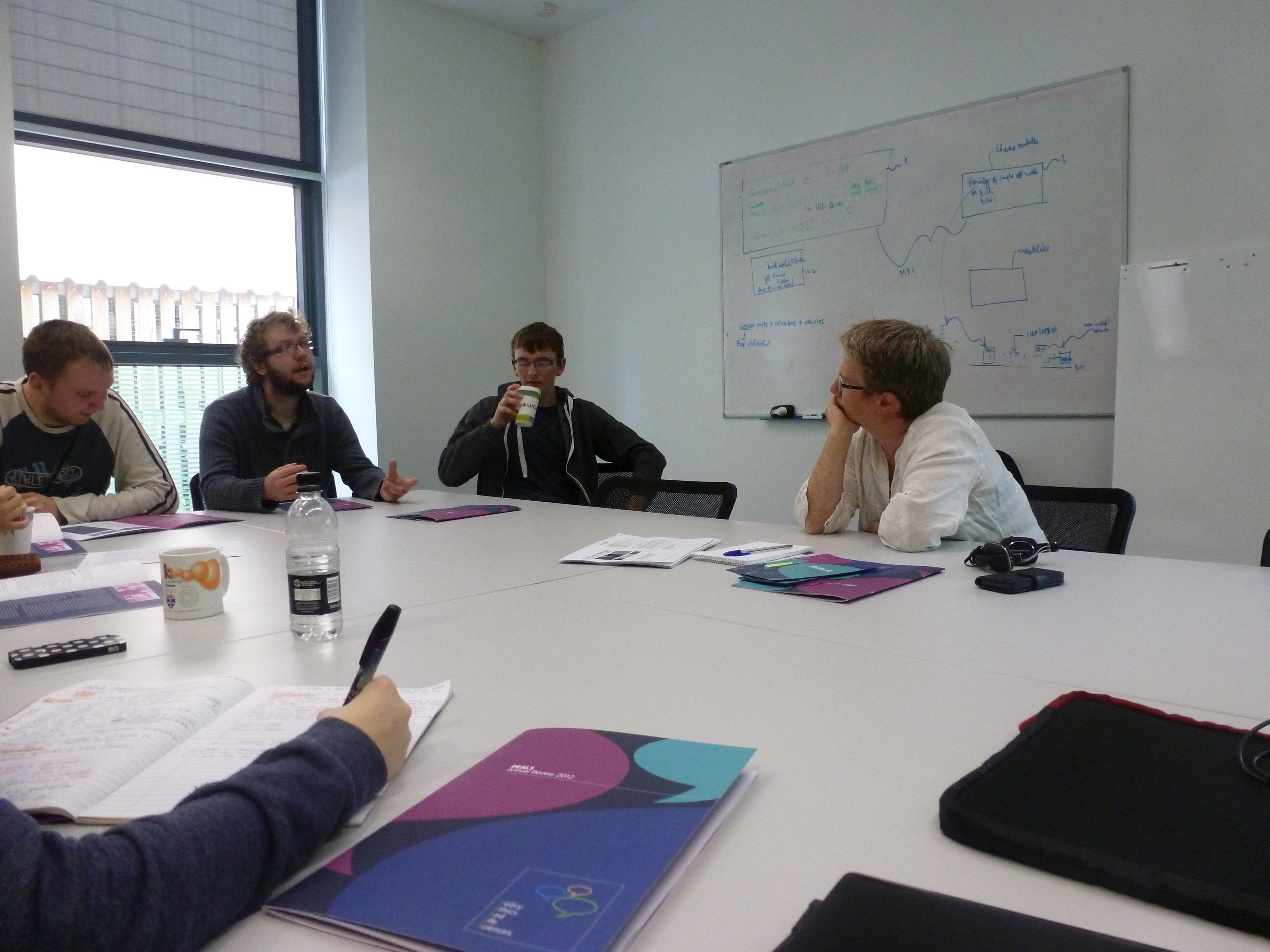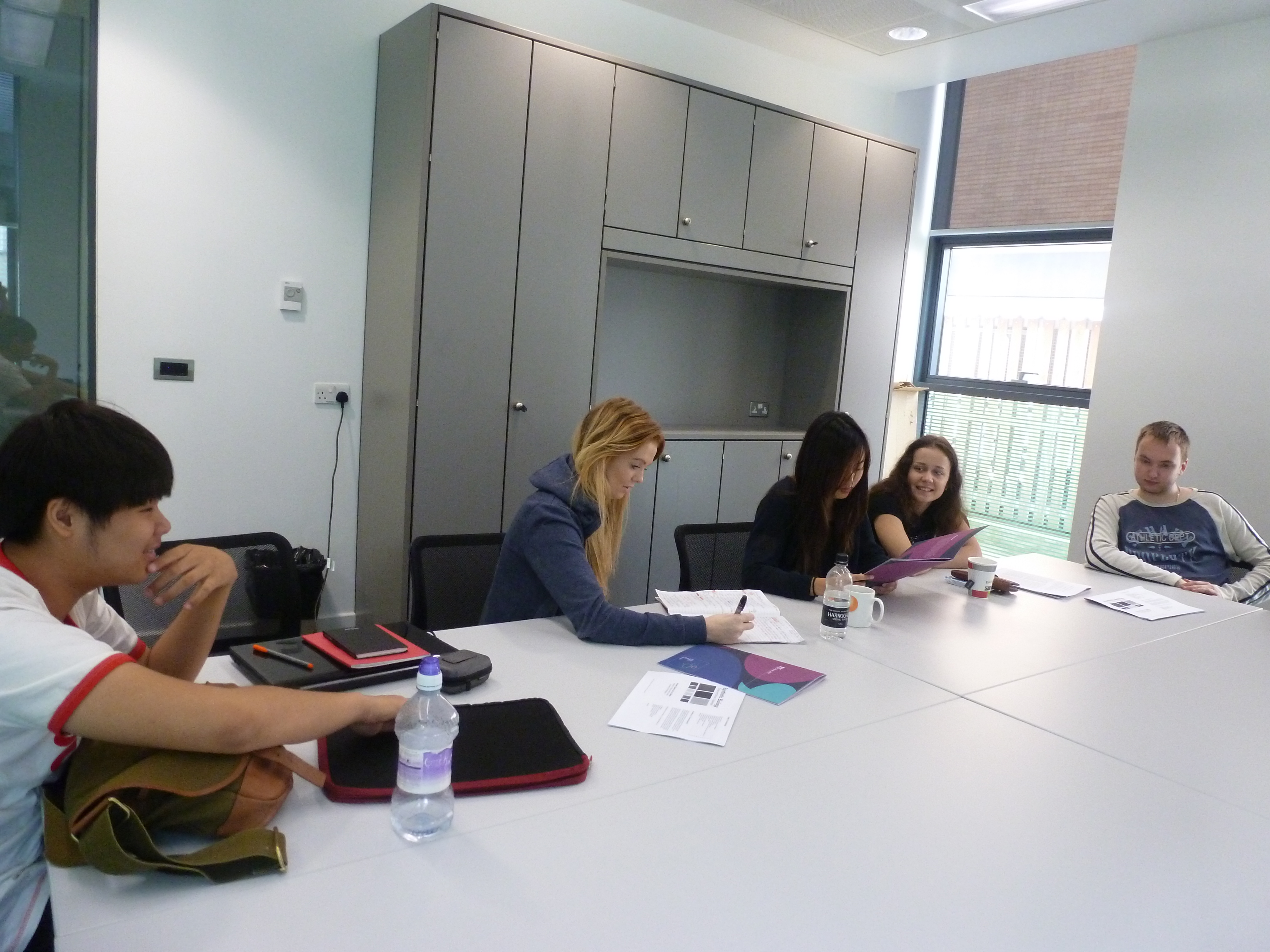Team:Newcastle/Outreach/Overview
From 2013.igem.org
(Difference between revisions)
YDemyanenko (Talk | contribs) |
|||
| (11 intermediate revisions not shown) | |||
| Line 32: | Line 32: | ||
| - | We | + | We didn't spend all our summer inside the Centre for Bacterial and Cell Biology, we also considered our project and iGEM in a wider context. |
| + | |||
| + | We took time to connect to as many people as possible: | ||
# [https://2013.igem.org/Team:Newcastle/Outreach/BioGame We designed a BioGame to entertain and inform young biologists about synthetic biology.] | # [https://2013.igem.org/Team:Newcastle/Outreach/BioGame We designed a BioGame to entertain and inform young biologists about synthetic biology.] | ||
| Line 38: | Line 40: | ||
# [https://2013.igem.org/Team:Newcastle/Outreach/Workshop At YSB 1.0 we gave a presentation about rule-based modelling and the software BioNetGen to the other U.K teams. Team Leeds went on to use BioNetGen some for their modelling.] | # [https://2013.igem.org/Team:Newcastle/Outreach/Workshop At YSB 1.0 we gave a presentation about rule-based modelling and the software BioNetGen to the other U.K teams. Team Leeds went on to use BioNetGen some for their modelling.] | ||
# [https://2013.igem.org/Team:Newcastle/Outreach/Architecture We held an architecture and synthetic biology workshop with architecture students to explore the relationships between the two fields and how they may interact in the future.] | # [https://2013.igem.org/Team:Newcastle/Outreach/Architecture We held an architecture and synthetic biology workshop with architecture students to explore the relationships between the two fields and how they may interact in the future.] | ||
| + | #We took time to consider and document the [https://2013.igem.org/Team:Newcastle/HP/Safety safety], [https://2013.igem.org/Team:Newcastle/HP/Ethics moral] and [https://2013.igem.org/Team:Newcastle/HP/Law legal] aspects of synthetic biology and BareCillus. | ||
| + | #We compared the methods used in the fields of [https://2013.igem.org/Team:Newcastle/Architecture architecture and synthetic biology and explored how synthetic biology may impact on architecture.] | ||
| + | [[File:Barecillus PEALS.JPG|frameless|300px]] | ||
| + | [[File:Barecillus PEALS2.JPG|frameless|300px]] | ||
| - | + | ''The team discussing our projects safety with Professor Janice McLaughlin from PEALS.'' | |
{{Team:Newcastle/Sponsors}} | {{Team:Newcastle/Sponsors}} | ||
Latest revision as of 20:12, 4 October 2013
X

Implications
We didn't spend all our summer inside the Centre for Bacterial and Cell Biology, we also considered our project and iGEM in a wider context.
We took time to connect to as many people as possible:
- We designed a BioGame to entertain and inform young biologists about synthetic biology.
- At the iGEM U.K. meet up (YSB 1.0) we gave a presentation and presented a poster about BareCillus.
- At YSB 1.0 we gave a presentation about rule-based modelling and the software BioNetGen to the other U.K teams. Team Leeds went on to use BioNetGen some for their modelling.
- We held an architecture and synthetic biology workshop with architecture students to explore the relationships between the two fields and how they may interact in the future.
- We took time to consider and document the safety, moral and legal aspects of synthetic biology and BareCillus.
- We compared the methods used in the fields of architecture and synthetic biology and explored how synthetic biology may impact on architecture.
The team discussing our projects safety with Professor Janice McLaughlin from PEALS.
 "
"

